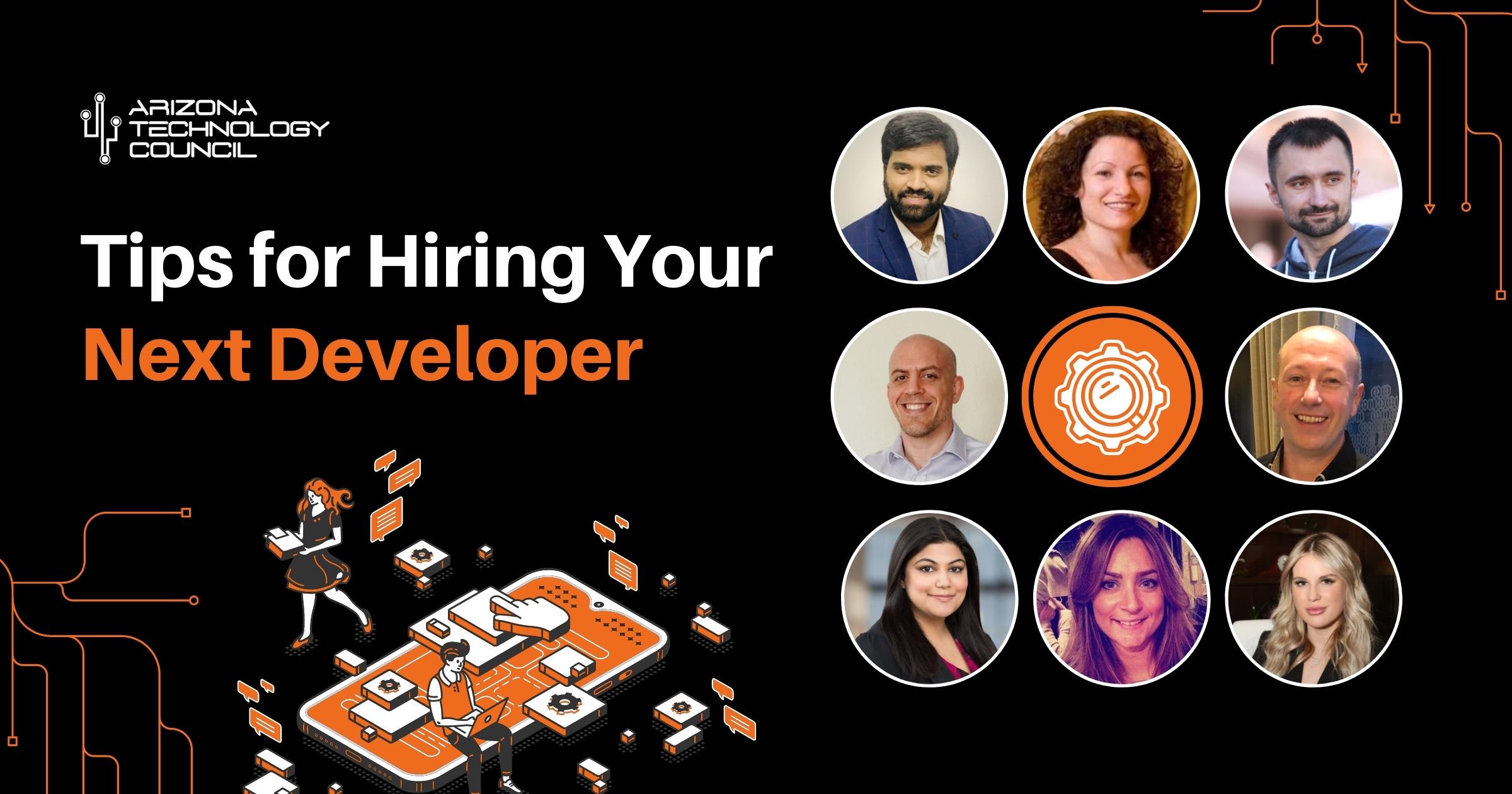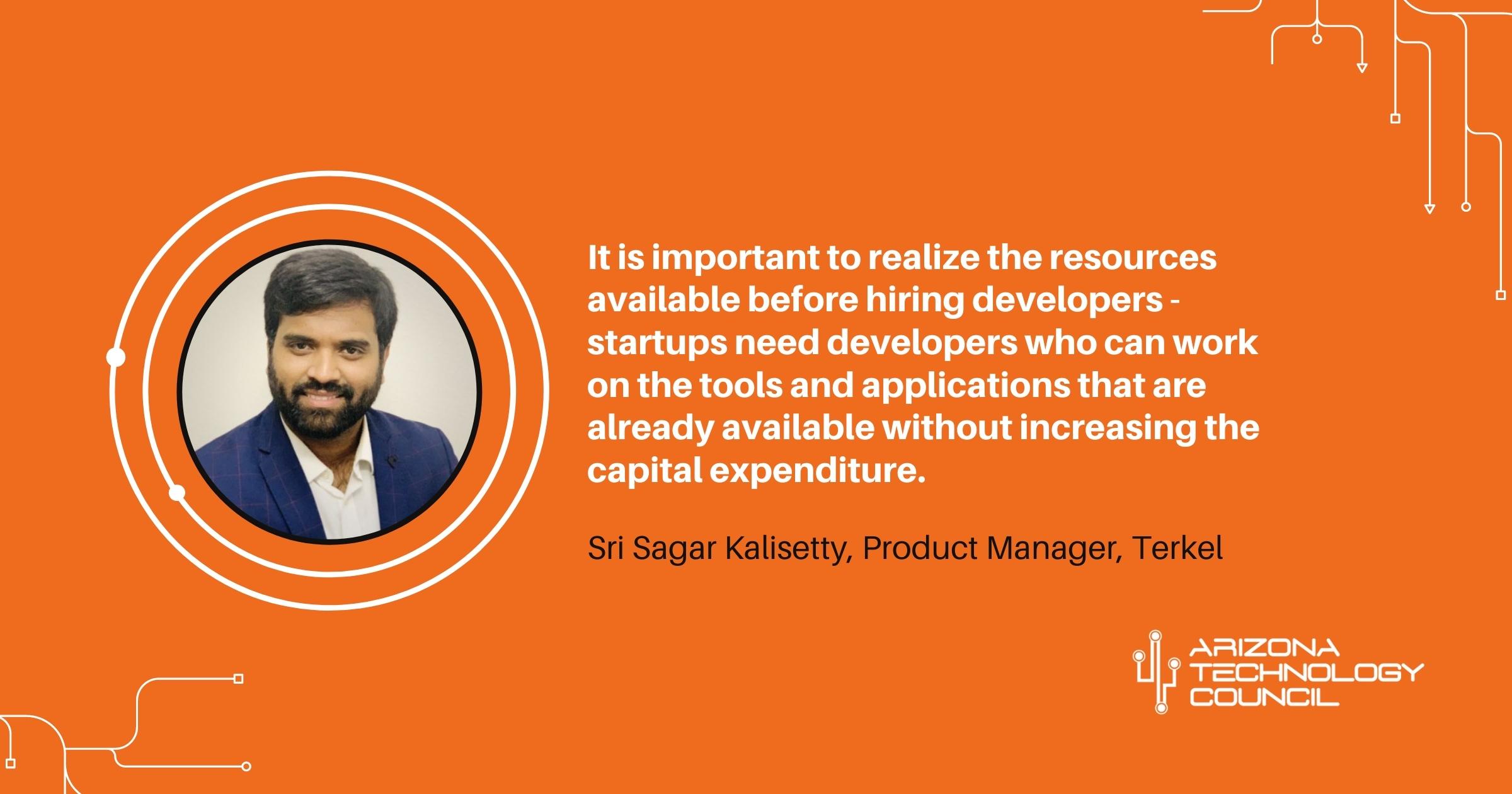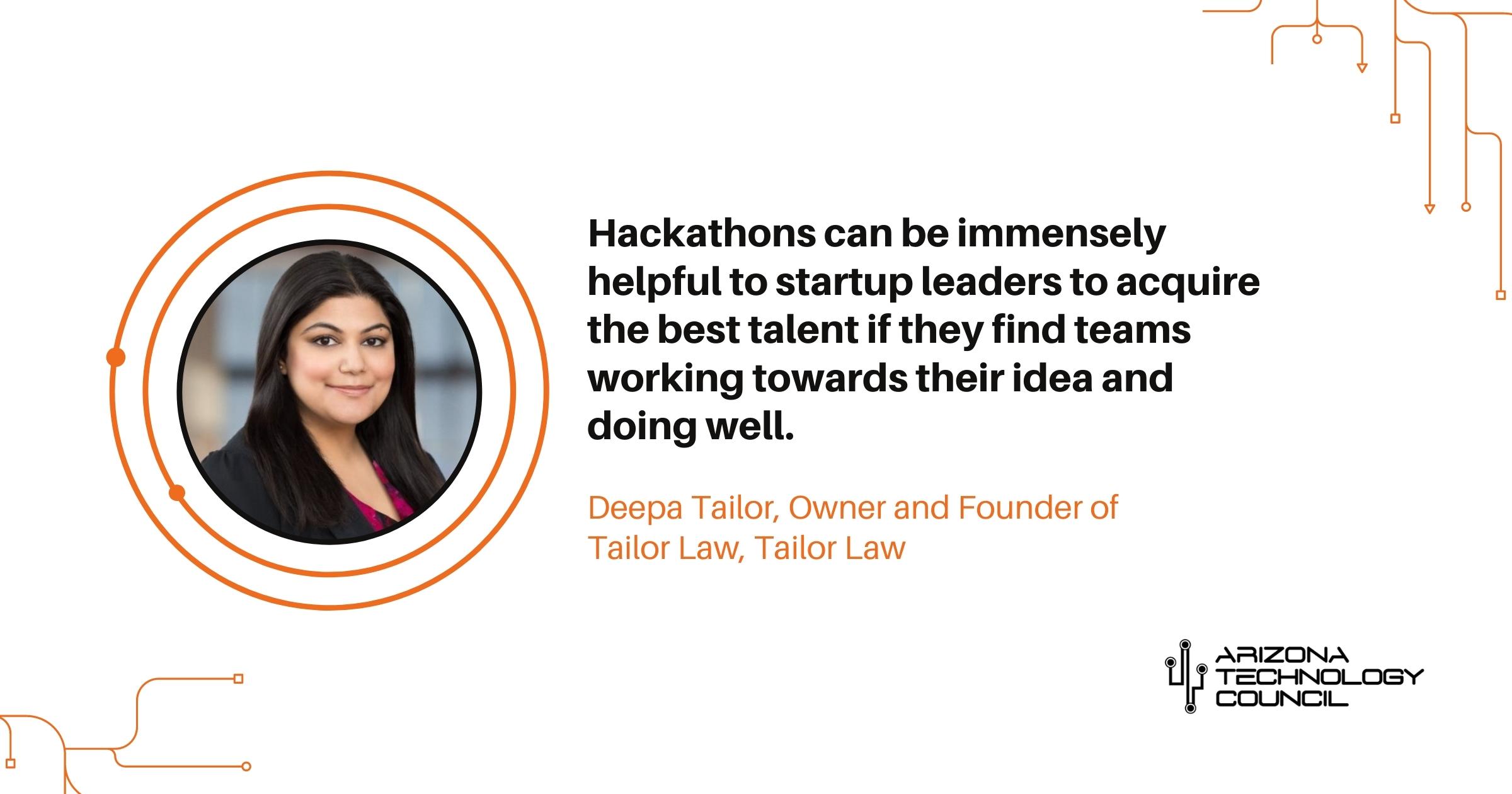14 tips for hiring your next developer

What is one tip for a tech startup looking to hire its next developer?
To help you hire the best developers for your tech startup, we asked tech hiring managers, recruiters, and tech business leaders this question for their best insights. From understanding the need and talent required to ensuring they can collaborate across all departments, there are several tips that would guide you in adopting best practices in hiring developers that are just right for your tech startup.
Here are 14 tips these leaders followed in hiring developers for their tech startups:
- Understand the Need and Talent Required
- Welcome Remote Candidates
- Look for Prior Experience Working in Startups
- Look for Someone Who Can Support With Their Own Vision
- Hire Those Who Fit Your Workplace Culture
- Start With a Full Stack Developer and Then Specialists
- Make the Interview Process Developer-Friendly
- Get Someone Who is Not Limited in Communication and Problem-Solving
- Know the Difference Between Developers and Programmers
- Ask Them to Perform a Task
- Hone in on Developers Using Targeted Social Ads
- Leverage Developer Events Like Hackathons
- Prioritize Skills and Experience Over Degrees
- Ensure They Can Collaborate Across All Departments
Understand the Need and Talent Required
Finding a matching talent is hard, especially at a startup. A thorough and in-depth analysis is to be made before making a decision of hiring a developer at a startup. Analysis should include the requirement and the quarterly goals for the startup and how a new talent addition can help in achieving them. Next, it is important to realize the resources available before hiring developers – startups need developers who can work on the tools and applications that are already available without increasing the capital expenditure. Finally, look out for skillset matching after making a job description that comprises the requirements, duties, and resources at the organization.
Sri Sagar Kalisetty, Product Manager, Terkel

Welcome Remote Candidates
When recruiting for a developer role, welcome remote candidates so that you can widen your candidate pool in terms of geography. This will allow for the ability to choose between a good developer who is local and an excellent developer who lives somewhere else. This should be doable, as a developer typically does not need to work too much with other people or with customers.
Nick Shackelford, Managing Partner, Structured Agency
Look for Prior Experience Working in Startups
Look for prior experience working in startups in roles similar to the one you are hiring for. This may seem like obvious advice, but many people early on in their tech careers are known to hop from company to company big and small. Just because someone has 5+ years of experience at Apple does not mean they will be a good fit for your new small startup of 15 people. Interview wisely and choose accordingly,
Ubaldo Perez, CEO, Hush Anesthetic
Look for Someone Who Can Support With Their Own Vision
You want to see someone who can bring their own vision to the table. It’s not enough to get someone who can help you realize your vision – though of course that’s part of it. But in the make-or-break world of startups, someone as important as a developer has to have a vision of their own. When you get to the interview phase, look to see what sort of new ideas they bring to the table. In the dynamic startup environment, you need a dynamic developer whose ideas are dynamite.
Marcus Hutsen, Business Development Manager, Patriot Coolers
Hire Those Who Fit Your Workplace Culture
Many developers love working on tight-knit teams, while some don’t play as well with others. Simply listing the required skills and technical knowledge isn’t enough to make a great hire, as your job listing should also include contextual clues about your workplace culture. If employees are expected to communicate and participate often, this should be made clear early in the recruitment process. Ask candidates what their preferred workplace setup looks like to ensure you’re on the same page. Otherwise, you might hire someone who sounds great on paper but doesn’t fit in, wastes company resources, and leaves as quickly as they arrived.
Marina Vaamonde, Real Estate Investor & Founder, HouseCashin
Start With a Full Stack Developer and Then Specialists
If you’re a tech startup looking to build your developer team, start by hiring a full-stack developer. They should be a generalist who understands front-end, and back-end development enough to get the job done, using a variety of frameworks. Once they are installed and acclimated to your systems, it’s time to hire specialists. The full-stack developer can then act more as a project lead, and coordinate with each specialist to build out specific aspects of your SaaS or other solution.
The advantage here is that the full-stack developer will have eyes on all aspects of your project, and can serve as a conduit between management and marketing teams, and the developer team. Additionally, they’ll be able to fill gaps when you lose staff. For example, you might lose your front-end, CSS specialist. It could take time to hire a proper replacement. In the interim, the full-stack developer could take on that responsibility to fix anything that breaks with each code deployment.
Dennis Consorte, Host, Snackable Solutions
Make the Interview Process Developer-Friendly
The key to success while hiring a software developer lies in having a great recruitment process. The first step is to create an attractive job description that accurately reflects your company culture and the role you’re looking to fill. You can also use different online assessment tools to screen candidates. Once you have a shortlist of candidates, it’s time to move on to the interview process.
While conventional face-to-face interviews are still popular, they may not be the best option when hiring developers. This is because developers are often introverted and uncomfortable in social situations. A better alternative would be to conduct technical interviews via video call or even better, use pair programming tools during the interview process. This will give you a better idea of the candidate’s technical skills and abilities.
Danielle Bedford, Head of Marketing, Coople
Get Someone Who is Not Limited in Communication and Problem-Solving
When hiring a developer, you want to find someone who is able to interpret your needs and can translate their approach in a way you understand. As a startup, you are likely lean and may not know the exact technical requirements to execute your idea, so it is crucial that your developer isn’t too literal. If you aren’t able to express a creative idea or solution in “their language”, they need to be able to take what you are wanting and make it happen. In that same vein, they need to be able to explain why something may be impossible without diving into dismissive jargon.
Volodymyr Shchegel, VP of Engineering, Clario
Know the Difference Between Developers and Programmers
People who don’t have much knowledge about software engineering think that programmers and developers are the same. But this is not the case, developers are more skilled and qualified people who can fulfill plenty of tasks efficiently. While programmers are only those people who know how to code. Developers know everything about developing and creating applications and software skilfully. So before hiring a developer for your tech startup it’s important to know the difference between the two. And hire a developer for your tech startup rather than a programmer because a programmer doesn’t know much about developing software and applications.
Robert Warner, Head of Marketing, Virtual Valley
Ask Them to Perform a Task
If there’s one thing we’ve learned from our hiring process, it is that ‘looks really can be deceiving.’ And that is especially true when you hire based on set criteria in a resume. Not only can your candidate easily fake their skills, but it can end up not being exactly what you’re looking for.
Instead of writing a job description and asking for requirements and skills, we focus on task-based interviews where practical candidates are asked to perform a smaller version of the task needed to ensure they know what they’re doing, they have the skills needed, and are able to understand our briefs. This means that we can end up hiring someone who doesn’t have the set criteria on paper, but actually knows what they’re doing and can help us avoid unnecessary disappointment in the hiring process.
Jenna Nye, CEO, On the Strip
Hone in On Developers Using Targeted Social Ads
Paid ads may seem impersonal, but their sophisticated targeting software can help you connect with highly-skilled developers quickly. Try established social media platforms like Reddit, Facebook, LinkedIn, Twitter, and Google, customizing your demographics based on skills, interests, location, and countless other options. Hone in on the developers you want quickly, then reach out to set up interviews and continue through the hiring process.
Jack Underwood, CEO & Co-Founder, Circuit
Leverage Developer Events Like Hackathons
Hackathons are gatherings where programmers and other professional developers collaborate to develop new products or address technical issues. At hackathons, teams made up of members with various skill sets are frequently established. These teams present their ideas to the judges and business leaders after the competition. Hackathons are events where tech startup owners can meet computer talent in person. They can make a pitch by describing the issue that the startup hopes to address and why it is important. Hackathons can be immensely helpful to startup leaders to acquire the best talent if they find teams working towards their idea and doing well.
Deepa Tailor, Owner and Founder of Tailor Law, Tailor Law

Prioritize Skills and Experience Over Degrees
When hiring technical talent, examine candidates’ portfolios carefully. Ask specific questions about problems they encountered when building past products and the thought process they used to solve them. Asking candidates to describe their exact problem-solving process for past projects helps to illustrate their actual skills rather than using formal degrees to exaggerate their problem-solving abilities.
Nico Hodel, Co-CEO, Start It Up
Ensure They Can Collaborate Across All Departments
When hiring a developer, take into account not only their top-notch technical abilities but also their capacity to collaborate well with others and how they can add value to your workplace’s mission. A good developer will have both the hard skills required to do their job well and the soft skills required to work effectively with others, and contrary to belief, developers do need to play nice across departments.
Consider the websites or forums you are advertising on for the position and make sure you clock the right language to appeal to someone who has both the tech knowledge you seek and the personal skills that are beneficial for a melting pot of ideas to boost innovation. You will save time and money by putting in the initial effort to find a developer who is simultaneously appropriately qualified and culturally compatible.
Eran Galperin, CEO, Gymdesk
